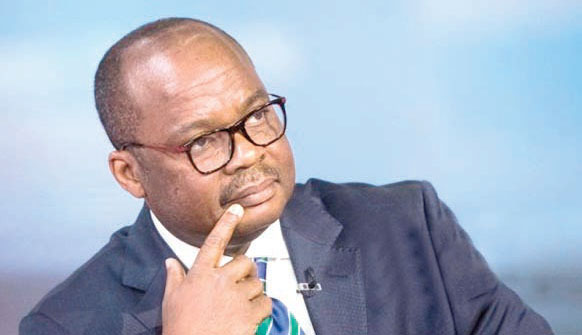Economic activities as tracked by the central bank’s real Composite Index of Economic Activity (CIEA) have slowed for a second consecutive period ending third quarter of 2022, contracting by 1.2 percent.
This contraction is down from the 11.1 percent recorded a year earlier, and also from the 1.6 percent recorded mid-year 2022 according to the Bank of Ghana’s Summary of Macroeconomic and Financial Data.
The data by BoG, which mostly signals the possible outcome of growth, heralds the official release of gross domestic product (GDP) data by Ghana Statistical Services (GSS), later this month.
Largely, the latest high-frequency indicators as measured by the Bank point to some moderation on the back of weakened consumption, trade and construction activities.
“Domestic economic activity has moderated somewhat. High-frequency indicators monitored by the Bank signalled some moderation in economic activity in the third quarter relative to first two quarters of the year. The main indicators that dragged down the Index were domestic VAT, ports activity and cement sales,” Dr. Ernest Addison, Governor of the BoG, said in a statement at press briefing following the 109th meeting of the monetary policy committee.
“These trends signal that growth may remain below potential levels on account of rising cost of living amid significant uncertainty in the outlook. Both business and consumer sentiments continue to soften and remain at low levels,” the Governor stated.
Despite these trends, Dr. Addison mentioned that private sector credit growth, in real terms, remains relatively strong – and this provides scope for the real sector to continue on the path of sustaining a positive outlook for economic activity.
BoG’s hawkish inflation stance impacts growth
The BoG’s hawkish stance on inflation continues to pose significant risk to growth, which is now secondary to the central bank’s focus. The MPC concluded its last meetings of the year by raising the benchmark interest rate by another 250 basis points (bps) to 27 percent to continue its fight against surging inflation and re-anchor inflation expectations.
This brings the full-year rate increases to a historic 1,250bps (12.50 percent) in 2022.
During the policy rate announcement, the committee said it expects a possible peaking of headline inflation in Q1-2023 to settle at around 25 percent by end of Q3-2023 in their baseline scenario. However, implementation of the 2.5 percent increment in VAT and the pass-through effects of exchange rate losses remain significant risks.
Global Growth
Two years since outbreak of the COVID-19 pandemic and Russia-Ukraine war, the global economy continues to face severe headwinds coupled with heightened uncertainties. Global growth has slowed, with recession concerns dominating markets in the near-term.
Moreover, central banks’ resolve to dampen the persistent and broad-based inflation pressures globally has led to aggressive policy-tightening in advanced economies.
The US Federal Reserve has frontloaded its policy-tightening cycle, resulting in tight global financing conditions and a stronger US dollar against major international currencies. These developments have spilled over into currency pressures and imported inflation, complicated access to external capital markets and resulted in acute capital outflows, especially in emerging markets and frontier economies.
Risks to the global outlook are firmly on the downside, reflecting the possibility of policy mistakes amid deteriorating growth and elevated inflation, tighter financing conditions and a stronger US dollar.
“These external shocks have had severe consequences on the Ghanaian economy, reflected in high and rising inflation from exchange rate pass-through effects and a complicated policy environment,” the Governor said.










